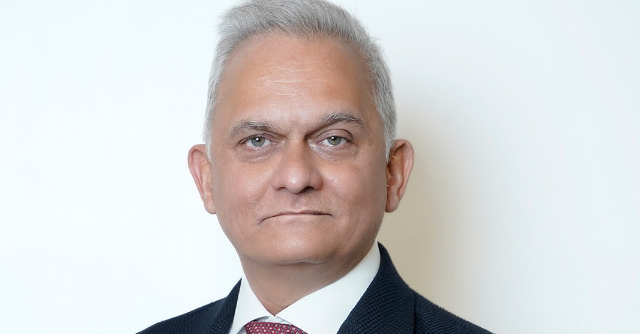
We aim to create clean, high-quality data within organisations: GTT Data Solutions' CEO


The IT services industry in India is undergoing significant changes, driven by the rise of Artificial Intelligence (AI) and evolving business models. Pune-based software firm GTT Data Solutions, which was created a year ago when its promoters merged their small firms with an existing public company Cinerad, and has been building its business with string of pearl acquisitions, seeks to leverage clean data and AI tools to support businesses across various sectors. In a conversation with TechCircle, Gopal Patwardhan, CEO of GTT, shared insights on the company's growth strategy, GTT's shift from traditional technology-based teams to industry-focused solutions, and how the firm plans to use AI to optimise processes in sectors like banking, financial services and insurance (BFSI), and manufacturing. Edited Excerpts:
GTT has ambitious growth targets from the current annual revenue of around Rs 15 crore. What would drive it?
We don’t develop products or technology; instead, we tap the newest AI tools as they emerge. After evaluating their capabilities, we apply our strengths in engineering, data engineering, and data warehousing to fully leverage them.
The core of our approach lies in creating clean, high-quality data within organisations. This is crucial because clean data is the foundation for building effective AI modules. We help enterprises organise and refine their data so they can make the most of advanced AI tools and techniques.

Moreover, our approach sets us apart from traditional companies. Instead of performing a number of analyses, assembling software components, and stitching them together, we begin by assessing an enterprise’s data landscape, then build a clean, structured data foundation that the entire organisation can utilise. Rather than focusing on isolated point solutions, we create a strong database and layer AI tools on top to build the applications and interfaces that clients need today.
How are you strengthening India presence?
We’re expanding into tier 2 and tier 3 cities, starting with locations like Sangli in Maharashtra, where we’ve established a competence center employing around 100 people and plan to scale this number up to 400 in the coming two to three years.
While our corporate office in Pune already has 200 people, most of our future hiring and talent expansion will focus on the new center, i.e., Sangli.

In addition, we’re working on establishing Centers of Excellence in either Chennai or Bengaluru. These centers will concentrate on advanced technologies.
Moreover, we have shifted our business model. Contrary to the traditional approach of hiring Java or Node.js programmers to develop various solutions for clients, we’re aligning our business around the industry verticals. We develop domain-specific solutions for sectors like BFSI, logistics, manufacturing (including discrete, commodity, and chemical manufacturing), hospitality, and healthcare.
Each vertical has unique business processes, which in turn determine how technologies like generative AI or predictive AI can be best applied using data sources.

Also, AI has started outperforming traditional programming, and up to 80% of current tasks may become obsolete. This will lead to major workforce restructuring and a renewed focus on reskilling.
Since we’re building from a relatively clean slate, we have the opportunity to design a future-ready organisation from the ground up. We believe this gives us a strong advantage in the Indian market.
How can automation be a game-changer for BFSI and manufacturing?
Within BFSI, there are numerous business processes that can be either automated or optimised using AI tools. One such application is agentic AI. Imagine a purchase order being automatically processed, converted into a requirement definition, routed to the relevant departments, and then used to generate internal purchase orders to build subsystems or assemblies. This significantly reduces manual intervention as well as time in workflows.

Similarly, GenAI is being used for dynamic pricing, procurement, logistics, and supply chain management.
However, the foundation for effective AI implementation is clean and high-quality data. If the data going into the system is pure, the output will be strong, and we’ll definitely witness the benefits. That said, the biggest challenge continues to be building and maintaining that clean data infrastructure, including setting up a robust data warehouse. This remains the most effort-intensive part of the process.
You've recently acquired CRG Solutions and Alpharithm, boosting your tech stack. Are there any specific gaps you're still looking to fill, particularly in cybersecurity, cloud or other verticals?
Alpharithm will play a crucial role in our data strategy. CRG, one of the early players in India’s data space, began by representing Tableau when it first launched in the US more than two decades back. Since then, CRG has been implementing Tableau, an advanced data visualisation tool, for a wide range of Indian clients.

While CRG is focused on selling and implementing Tableau and other software products, Alpharithm takes it further. Rather than acting as just a reseller, Alpharithm specialises in data engineering. Their team builds the foundational data structures—such as data warehouses and data lakes—that power visualisation tools like Tableau. In essence, they lay the groundwork needed to enable effective data analytics and visualisation.
This capability allows us to deepen our client relationships. A typical CRG customer with a business value of ₹1–2 crore can grow into a ₹6–8 crore account when supported by Alpharithm’s data engineering solutions.
From a technology strategy perspective, we’re not focused on acquiring companies to fill tech gaps. Instead, we aim to remain technology-agnostic. That means we don’t push clients to adopt a specific vendor. Our goal is to understand each client’s business needs and apply solution sets tailored to their specific context.

We collaborate with major players like IBM and Microsoft, but we also actively work with emerging AI startups.
